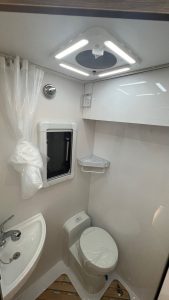Introduction
Truck mounted cranes play a crucial role in various industries, including construction, utilities, transportation, and more. These versatile machines combine the mobility of a truck with the lifting capabilities of a crane, making them indispensable for handling heavy loads in diverse work environments. However, not all businesses are in a position to purchase a truck mounted crane outright due to the high initial investment costs. In such cases, leasing can be a viable option that allows companies to access the equipment they need without the financial burden of ownership.
This comprehensive guide delves into the world of truck mounted crane leasing options, exploring the benefits, considerations, and key factors to keep in mind when choosing a leasing arrangement that suits your business needs.
Benefits of Leasing Truck Mounted Cranes
1. Cost-Effective Solution: One of the primary benefits of leasing a truck mounted crane is the cost-effectiveness it offers compared to purchasing outright. Leasing allows businesses to spread out the cost of acquiring the equipment over time, making it more manageable in terms of cash flow and budgeting.
2. Access to Latest Equipment: Leasing provides companies with the opportunity to access the latest truck mounted crane models without the need for significant upfront capital. This ensures that businesses can stay competitive and take advantage of technological advancements in crane equipment.
3. Flexibility and Scalability: Leasing offers flexibility in terms of contract duration, allowing businesses to adjust the lease term based on their specific project requirements. Additionally, leasing enables companies to scale their equipment fleet up or down as needed, providing agility in responding to changing business demands.
4. Maintenance and Support: Many leasing agreements include maintenance and support services, relieving businesses of the burden of managing crane maintenance and repairs. This can help reduce downtime and ensure that the equipment operates efficiently throughout the lease term.

Considerations When Leasing a Truck Mounted Crane
1. Lease Duration: When considering leasing options for a truck mounted crane, it is essential to determine the appropriate lease duration based on the intended use of the equipment. Shorter lease terms may be suitable for project-specific requirements, while longer leases can offer stability and cost savings for ongoing operations.
2. Lease Structure: There are different types of lease structures available for truck mounted cranes, including operating leases and finance leases. Each type has its own implications in terms of ownership, tax treatment, and flexibility, so it is important to assess which option aligns best with your business goals.
3. Equipment Specifications: Before entering into a lease agreement, businesses should carefully review the specifications of the truck mounted crane to ensure that it meets their operational requirements. Consider factors such as lifting capacity, reach, mobility, and additional features that may be necessary for specific tasks.
4. Lease Terms and Conditions: It is crucial to thoroughly review the terms and conditions of the lease agreement, including payment schedules, maintenance responsibilities, insurance requirements, and end-of-lease options. Understanding these terms upfront can help prevent any misunderstandings or disputes later on.
Key Factors to Keep in Mind When Leasing a Truck Mounted Crane
1. Reputation of the Leasing Company: When selecting a leasing partner for a truck mounted crane, consider the reputation and experience of the leasing company. Choose a reputable provider with a track record of reliable service, quality equipment, and transparent leasing practices.
2. Equipment Inspection and Maintenance: Before signing a lease agreement, inspect the truck mounted crane to ensure that it is in good working condition and meets safety standards. Clarify the maintenance responsibilities outlined in the lease contract to avoid any issues related to equipment breakdowns or repairs.
3. Sweeper trucks cleaning technology : Confirm the insurance coverage requirements for the leased truck mounted crane, including liability insurance, property damage insurance, and any additional coverage needed to protect your business from potential risks and liabilities.
4. End-of-Lease Options: Discuss the end-of-lease options with the leasing company to understand the process for returning the equipment, renewing the lease, or potentially purchasing the crane at the end of the term. Clarify any fees or obligations associated with the end-of-lease arrangements to avoid surprises at the conclusion of the lease term.
Conclusion
Leasing a truck mounted crane can be a strategic decision for businesses looking to access high-quality equipment without the upfront costs of ownership. By understanding the benefits, considerations, and key factors involved in truck mounted crane leasing options, companies can make informed choices that align with their operational needs and financial objectives. Whether for short-term projects or long-term fleet expansion, leasing offers flexibility, cost-effectiveness, and access to cutting-edge equipment that can drive efficiency and productivity in various industry sectors.
